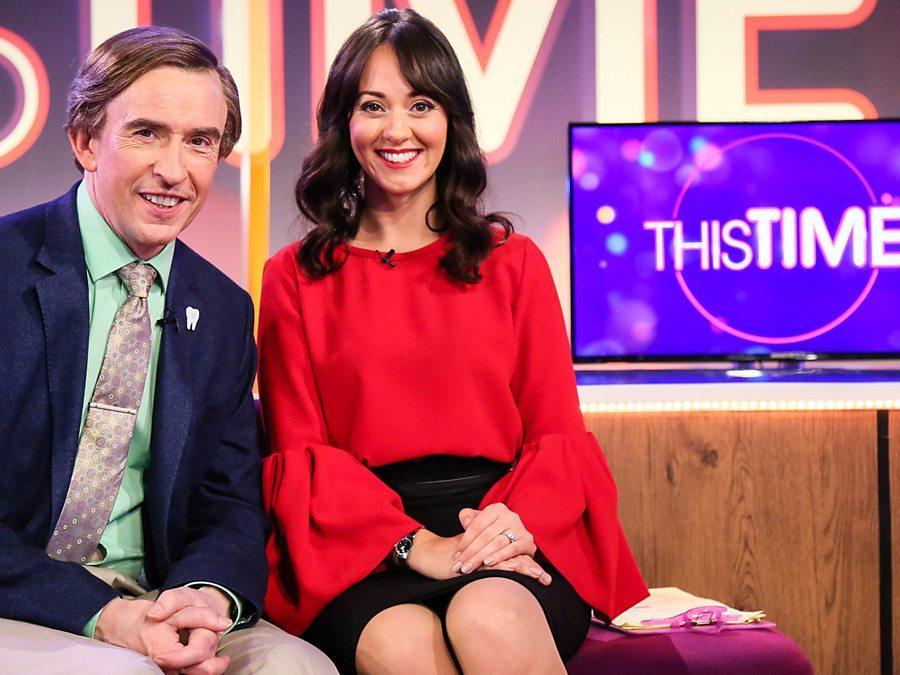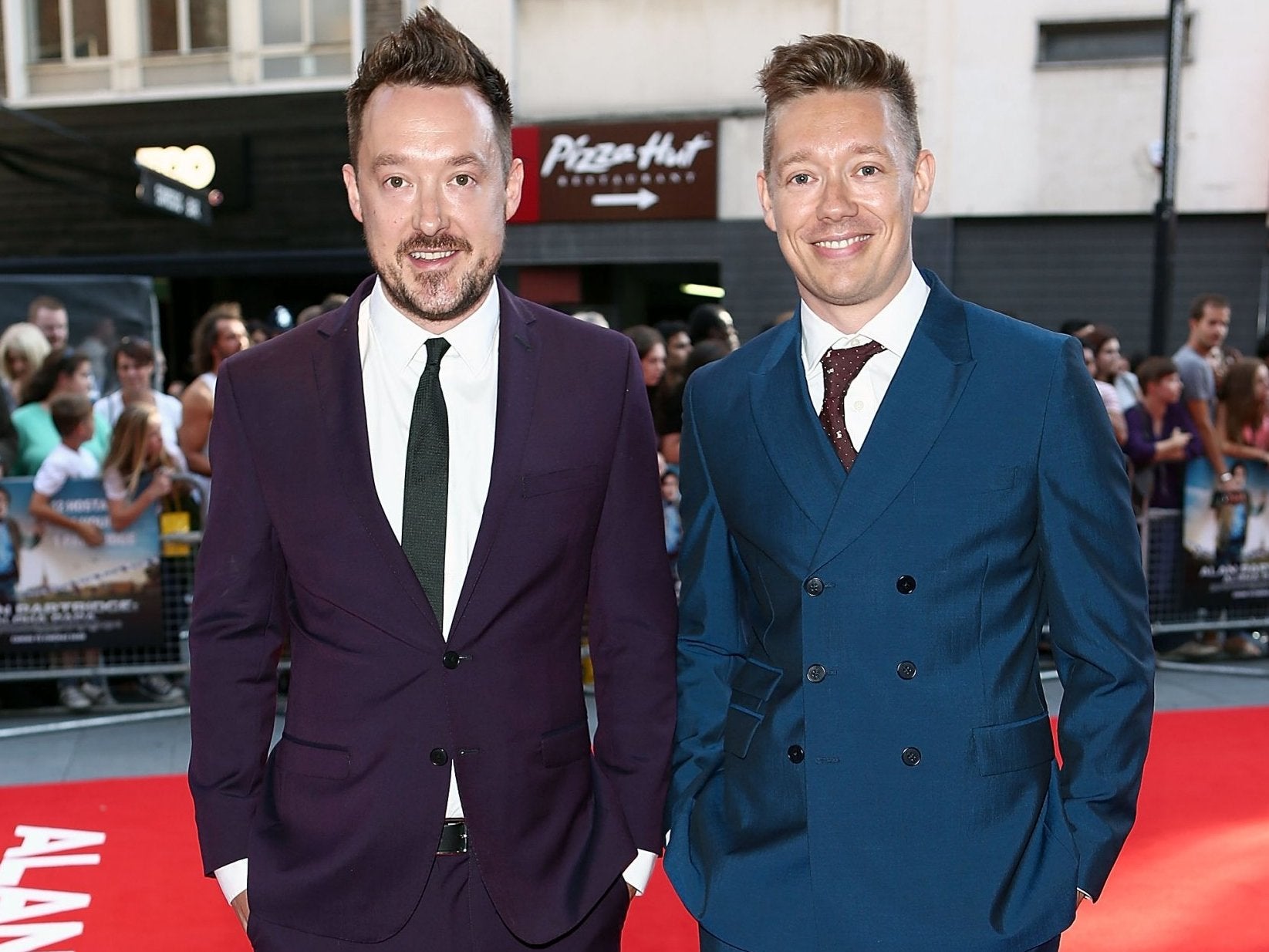Alan Partridge writers on new Steve Coogan series This Time: ‘He’s a crystallisation of the worst of us’
Twin brothers Neil and Rob Gibbons speak to Ed Cumming about plunging the legendary Norwich presenter into the woke waters of 2019 broadcasting


Your support helps us to tell the story
From reproductive rights to climate change to Big Tech, The Independent is on the ground when the story is developing. Whether it's investigating the financials of Elon Musk's pro-Trump PAC or producing our latest documentary, 'The A Word', which shines a light on the American women fighting for reproductive rights, we know how important it is to parse out the facts from the messaging.
At such a critical moment in US history, we need reporters on the ground. Your donation allows us to keep sending journalists to speak to both sides of the story.
The Independent is trusted by Americans across the entire political spectrum. And unlike many other quality news outlets, we choose not to lock Americans out of our reporting and analysis with paywalls. We believe quality journalism should be available to everyone, paid for by those who can afford it.
Your support makes all the difference.At last, Alan Partridge is back on the Beeb, as co-host of This Time. It’s a triumph for Alan the character. He has spent most of the past 20 years in local radio, where it looked as if he might be stuck forever. In the real world, it’s a vindication for Steve Coogan and his co-writers, twin brothers Rob and Neil Gibbons. To judge by the first episode, This Time with Alan Partridge is up there with some of the strongest material in the whole canon, nearly 28 years after the character made his debut.
Forget the catchphrases, the “A-ha”s the “Dan”s shouted across car-parks, the “back of the net”s. The genius of Coogan’s creation is to articulate the small-c conservatism inside everyone, the longing for rules and order when he finds himself endlessly a fish out of water. He has kept up with the times by being constantly totally out of touch with them, a would-be iconoclast who idolises Des Lynam. Unlike David Brent, there is no puppyish longing for affection. Partridge believes in his abilities and wants to be revered more than loved. His complete lack of interest in being liked, perversely, makes him more likeable.
You might have thought that in the wake of the Brexit vote, the world could be more accommodating for Alan. Instead, he is thrust into an environment as hostile as any he has encountered. The woke BBC of 2019 has no time for his old-fashioned ways, and in fact, we realise that in almost all his previous situations he has been on home turf. His co-host, Jenny Gresham (Susannah Fielding), presents with a level of professionalism that quickly turns into hostility towards her oafish new colleague. At times you even feel sorry for Alan. He wants so much to succeed, and is so out of his depth, that it is hard not to root for him.
There is now so much Partridge material out there – as well as the TV series there was a big-budget movie, Alpha Papa, two excellent books, I, Partridge and Nomad, and a series of one-off documentaries – it is easy to forget that in the early Noughties it looked as if the character might be gone for good. Alan seemed to have become a millstone round Coogan’s neck as he tried to crack Hollywood. (Around the World in 80 Days, anyone?) Partridge was set to follow other great male BBC characters and burn brightly for a short time. He had already had a good run. Basil Fawlty and Brent only had two series each.
Enter the Gibbonses, in 2010. They had initially been asked to supply material for a revival of two of Coogan’s other characters, Paul & Pauline Calf, but submitted some Partridge ideas on spec. Coogan hired them at once. Their first job was Mid-Morning Matters, sponsored by Fosters lager (lol) and only available online. After the grander sweep of I’m Alan Partridge, the character’s previous outing, which took him out and about around Norfolk, Alan relaunched on the smallest possible stage. A static camera focused on him as he hosted his local radio series, answering banal questions from callers, speaking to himself and bantering with his new sidekick, Sidekick Simon (Tim Key). On this small canvas the Gibbonses and Coogan found new depth in the character. Where the sitcom and chat show had depended more on set-pieces and writing, here we saw Alan in close-up. He revealed himself with every facial tic and expression.
The brothers now direct, as well as write, which means the process is continuous until the end of the edit. “Comedy’s a delicate thing to get right,” says Neil. “Sometimes what seems like a sure-fire joke on the page doesn’t work out loud. Steve is unusual in that he is happy to take direction on the smallest things. Between takes we’ll discuss whether Alan should take a breath on the second or third syllable, or how much he ought to raise his eyebrow.”
“Because of the way Alan evolved, starting out as a sports presenter on The Day Today and then the chat show and the sitcom, we felt we had licence to put him in different situations,” he adds. “You can pick him up and drop him in any form and see how he f**ks it up. Because his views on the world are funny, as the world evolves there is constantly more material for him.”
The real masterstrokes were the books, especially I, Partridge: We Need to Talk About Alan, in 2011. Pitched as a spoof of the celebrity memoir, it was much richer and funnier than it looked. Where before Alan had only a patchy backstory – his ex-wife Carol, his son Fernando, various run-ins with celebrities – the book put flesh on him. We learnt about his childhood, his time at uni, his early forays into broadcasting, and his protracted beef with Bill Oddie. In Dead Men Laughing, her essay on the part comedy played in her relationship with her father, the novelist Zadie Smith argues that the details of these characters “are almost always signifiers of social class: Hancock’s battered homburg, Fawlty’s cravat, Partridge’s driving gloves, Brent’s fake Italian suits. It’s a relief to be able to laugh at these things. In British comedy, the painful class dividers of real life are neutralised and exposed.” Over the past nine years, we have seen Partridge wedged awkwardly into the various gaps in British life, driven by bitterness and ego.

“We’ve tried to make him less of a Daily Mail Little England reactionary and give him shades of grey,” says Rob. “He learnt from that whole David Cameron era, where you had these dyed-in-the-wool Tories who realised they were more acceptable if they wore the clothes of liberalism. Before there was no filter between what Alan thought and what he said, but now he thinks more, although he still gets it wrong. It’s like Cameron and gay marriage – you knew these guys don’t really believe in it. Because Alan’s not comfortable and doesn’t know himself, it gives you a real breadth of character. In the same episode he can be attempting a macho version of himself and two minutes later he’s trying to be all metrosexual. It’s not a contradiction, it’s just he’s constantly searching for a version of himself that works. He’s a crystallisation of the worst of us, but you make allowances if people make you laugh.”
There is more in the tank, too. Filming will soon start on a different Partridge series, a Dimbleby-style grand sweep of British history in which he will “probably bite off more than he can chew”. Partridge’s place in British comedy history is assured, but nearly three decades on, the comparisons to Fawlty and Brent start to look limited. In those programmes, the laughs depended on these men failing in their specific environment. Alan Partridge brings comedy to every situation.
This Time with Alan Partridge airs on BBC One at 9pm on 25 February
Join our commenting forum
Join thought-provoking conversations, follow other Independent readers and see their replies
Comments